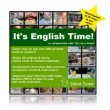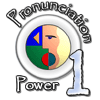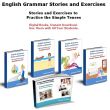Interview with Naomi Simmons
"Currently the world's best selling author of books to teach English as a foreign language to young children."
I am honored to be interviewing Naomi Simmons “the world’s best selling author of courses to teach English to young children” Naomi Simmons. It’s not every day that I get to interview best selling authors! Let’s get to it!
First I think it would be great if you could tell everyone a bit more about yourself. Who is Naomi?

Hi Diana. It’s great to be here on Helping You Learn English, a site I have admired for some time.
I have been a full time author of books and materials to teach English to young children for 20 years now. I write books for primary and pre-schools (kindergartens) worldwide and it has been very exciting to see the similarities and differences in schools in different countries.
The courses have to fit the syllabuses for each country and be relevant for each culture. The contrasts have been very interesting.
I wrote China’s main primary course, New Standard English (Macmillan) which has sold over 400 million copies. It needed to be funny and be based on Chinese culture, which was a fabulous challenge.
I also wrote OUP’s most successful primary course, Family and Friends, with editions worldwide and a number of successful courses for pre-school including, You and Me (Macmillan) and my newest course Ricky the Robot (Pearson).
I live in a small village just outside London in the UK with my two children and a bouncy dog called Sooty.
Now to the interview,
1) What is Naomi Simmons' philosophy or approach to teaching children English?
That is really simple. It is all starting with the child and following the child’s interests, passions and concerns. If the child is engaged and excited by their English lessons, they will be motivated to learn. The other big factor is keeping the material communicative, so they are using the material in ways that make sense to them.
2) Most parents are probably wondering what they can do to help their child enjoy learning English. What is your number one suggestion for parents to help their children love learning English?
This is a great question, Diana. I like the fact that you ask how to help kids enjoy and love English, rather than the more usual question of how to make children learn more.
My answer is quite simple. Look to see what your child enjoys doing most and find ways to integrate English learning with their existing passions.
For example, if your child enjoys singing, get a CD of songs for learning English and sing them with your child and ask him/her to perform them at a family party. If your child loves physical activity, play the games they love in English. They will be so engrossed in the game that the English they need to play it will be learned quite effortlessly.
3) Why do you think many children grow up disliking English class or learning languages?
Because too many English lessons and materials are boring. They are often prepared and produced by adults without taking into account what will excite and interest kids.
Unless language lessons and materials are fun and relevant to children’s lives, they will switch off and start to daydream. Lessons need to teach language that children will use in their day to day lives with their friends, in play and everyday activities. Otherwise they will see no relevance in what they are doing.
4) You have written over 120 ELT books (wow). Why do so many learning materials fail to help children learn English and what can parents expect from learning materials that you, Naomi Simmons, have written?
Yes, it’s a lot of books. Although they differ in many ways depending on the country, culture and type of school they are for, they do all share common features. The main feature is humour. Children spend a lot of time laughing (hopefully) and when they do so, a lot of fears and barriers to learning are overcome. All my courses include funny stories, songs and games that make children laugh, usually about absurd misunderstandings.
One of the happiest moments in my career was a surprise visit to a school in China and seeing that the children were acting out my stories in the playground during their break. No teacher had asked them to do this, and they were practising their English for fun. They were acting a story about Chinese children trying to teach foreigners how to eat noodles with chopsticks and how they ended up getting noodles everywhere – in their hair, face, coming out their nose, etc. The foreigners then teach the Chinese children to eat with a knife and fork, with equally messy results.
Another feature of my courses is recognition that many children are nervous to speak a foreign language, especially shyer children. For this reason, my courses often encourage children to communicate with puppets and face masks, which tend to give them a lot more confidence. In Ricky the Robot, the pre-schoolers have to teach Ricky English and how to behave in the human world (he is a naughty robot). We have found that many kids feel less self-conscious talking to Ricky than they would when talking to a teacher.
Although the courses are fun and motivating for the children, they are all built with clear and systematic syllabuses offering a clear progression and build-up of language skills.

5) In your experience, what are the three biggest mistakes that parents or teachers make when teaching children English?
1. Expecting them to memorize word lists. Unless they use the words in full sentences in meaningful situations immediately afterwards, they will forget the words almost immediately. Often teachers think that once they have covered an area of language, they assume that the children should ‘know’ it. In fact they need lots of repetition in different activities and contexts to set it in long term memory. As a child I thought I was bad at languages because I could not retain the words in my memory. Now I realize that this is not the case at all – more recycling and review was needed so that memory was not forced and language would be acquired more naturally.
2. Making language learning feel like a chore. If a child is not enjoying their English study, you can either force/encourage them to try harder OR you can find ways to make the learning experience more fun and relevant to their lives. If the class looks bored, change activity and sing an action song or do an action game to energizer them and get them engaged again.
3. Skipping the grammar is a big mistake. I have seen moves to avoid grammar teaching in some schools and just teach the children set phrases. However, unless they learn the structures of English, they will not be able to communicate properly and apply what they know in different situations. Grammar need not be boring or dry if it is presented in a ‘puzzle’ type of way and especially if the children then go on to use the grammar to play a really fun game to practice it.
6) In your opinion, when is the best time to start introducing a language to children, and what activities should parents and teachers focus on?
In my opinion, the age is less important than HOW the language is introduced. Obviously the earlier you start, the quicker the child will progress. However, there is lots of awful language teaching out there, so starting young can be counterproductive if the lessons are boring as it can turn them off language learning for a long time.
A great time to start is preschool (kindergarten), with materials and lessons that are fun and entertaining. The most important thing with very young kids is that it should not feel like learning to the child, just an extension of what they already love – stories, songs, games, drawing, etc. relevant for their age.
7) What advice can you give to parents who do not speak English well or as a first language? How can they help their children improve their English?
There is lots you can do. The main principal is that if they are not enjoying it, find another method and don’t force it or give up on English because your child does not enjoy a particular activity.
The main way to help is to send your child to a good after school language school for extra English lessons. These vary hugely in the quality of teaching, but some are really excellent. However, this is an expensive and time consuming option for many families.
You can also support their learning at home. There are DVD courses for children, although these tend to be very expensive, some are well put together and some are not. Alternatively, there are now quite a lot of resources on the internet. Some are free, but tend to just practice individual words in English rather than offering a complete course to speaking, reading, writing and understanding English. We offer a complete online course at www.teachkidsenglish.com at a very economical price.
There are also many games and activities you can do with your child at home, even without knowing too much English yourself. If you join my mailing list at www.teachkidsenglish.com (enter your email address at the Free activities page), you will receive a newsletter every fortnight with tips for activities you can do with your child at home to help them with their English. I will also be posting some articles on this site with suggestions on this very topic.

8) You have launched an exciting online course over at www.teachkidsenglish.com. Could you tell us why you launched the course and how it works?
I was frustrated by the lack of good resources to help young children learn English at home. Unless your child is lucky enough to have a great English teacher and materials at school, or you can afford private lessons, parents were pretty stuck. I spent a huge amount of time looking for resources to recommend but found the following problems:
· They were not complete and just taught isolated words, like colours or animal words. Your child will not communicate in English by just knowing individual words for colours. They need to learn how to build the words into correct full sentences so that they can communicate and use materials with a systematic syllabus.
· Many materials are too high level and assume the children already know a lot of English.
· They require the parent to speak English perfectly and explain everything to the child.
· They were for much older children – mainly age 11 plus.
· They are aimed at teachers rather than parents and children – and provide lesson ideas to use in the classroom, rather than for home use.
· They are very boring or have chaotic and badly planned language syllabuses.
For this reason, I developed teachkidsenglish.com, which is designed for complete beginners aged from 3 – 7 years of age. It is very easy to use and needs little or no parent involvement and parents do not need to know English. They learn English words and grammar structures through interactive games, puzzles, stories and songs. All is taught through a systematic and progressive language syllabus.
Probably the best way to find out how it works is to watch the video demo on the site. You can also play with the Free Activities and see if it feels right for your child. Even if you don’t want to be involved with the online course, if you leave your email address on the Free Activities page, I will send you newsletters with tips on how to help your child learn English.

Thank you so much Naomi for taking the time to answer my questions.
New! Comments
What do you think about this page? Leave me a comment in the box below.Still looking? Search the site for exactly what you need using the site search box below.
Happy exploring!
Discover these Amazing ESL Materials!
 |
 |
 |
 |
 |
 |
 |
 |
 |
 |
New! Comments
What do you think about this page? Leave me a comment in the box below.